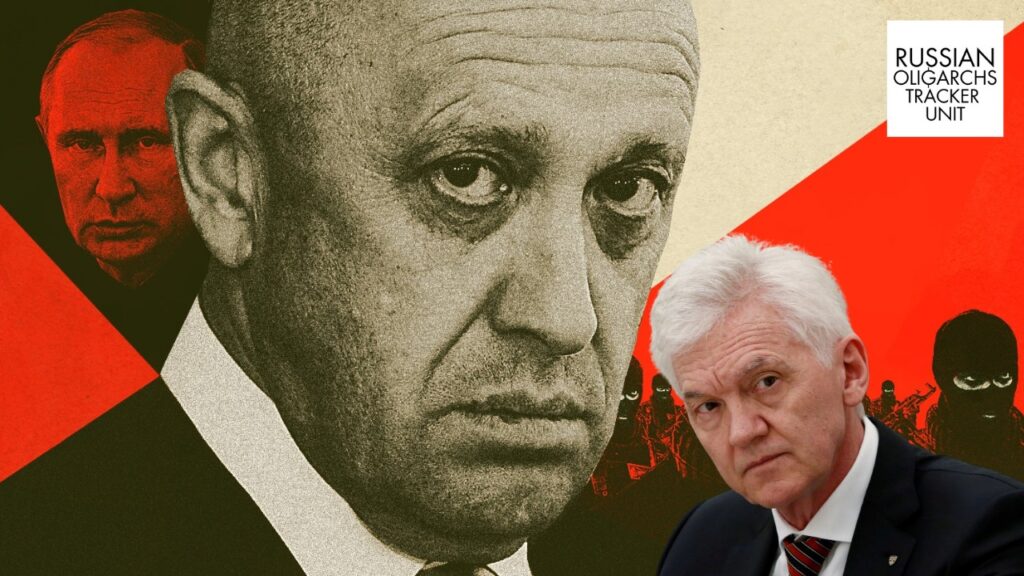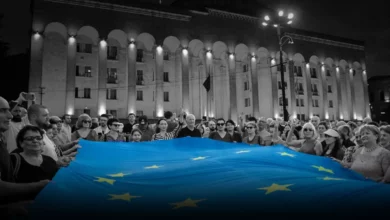3 Russian Oligarchs Sanctions Appeals Rejected by EU Court
The Court of Justice of the European Union (CJEU), headquartered in Luxembourg, recently upheld sanctions against 3 Russian oligarchs Sanctions and their family members, sparking significant international attention and debate. Among those affected is Dmitry Alexandrovich Pumpyanskiy, a billionaire with ties to the Russian oil and gas sector. This decision reflects the European Union’s commitment to sanctioning individuals connected to the Russian government amid ongoing conflicts, most notably the invasion of Ukraine. While Pumpyanskiy’s case saw his sanctions upheld, other oligarchs, such as Gennady Timchenko, faced similar outcomes. This article delves into the details of the CJEU’s decision, the implications of these sanctions, and the potential for future appeals.
Dmitry Pumpyanskiy’s Sanctions
Dmitry Pumpyanskiy, a prominent figure in the Russian oil and gas industry, found himself under EU Court sanctions in March 2022. The EU Court cited his significant influence in the sector as a crucial revenue source for the Russian government, despite his lack of direct involvement in the Ukraine conflict. Pumpyanskiy had previously owned a company specializing in manufacturing steel pipes for the oil and gas industry and held an estimated net worth of $2 billion (approximately €2 billion). His connections to Russian President Vladimir Putin, exemplified by the fourth-degree “Order for Merit to the Fatherland” he received in 2014, raised concerns about his role in supporting the Russian government.
Additionally, the sanctions extended to Galina Evgenyevna Pumpyanskaya, Dmitry’s wife, who chairs a foundation linked to his business interests. This inclusion of family members underscores the EU Court’s commitment to targeting not only oligarchs but also those closely associated with them.
Dismissal of Appeals by Gennady Timchenko and Elena Timchenko
Gennady Timchenko, a Russian tycoon known for his long-standing ties to President Putin, filed an appeal against the EU Court sanctions following Russia’s invasion of Ukraine in 2022. Elena Timchenko, his wife, also appealed against her sanctions. However, both appeals were dismissed by the CJEU, signaling a clear stance on sanctions against individuals connected to the Russian government.
This decision highlights the EU’s willingness to hold individuals accountable for their associations, irrespective of their direct involvement in conflicts. It also sends a message that individuals who have benefited from close ties to the Russian government may face consequences for their actions.
Tigran Khudaverdyan, former head of Yandex, Russia’s leading internet company, and Alexander Shulgin, former head of the Russian e-commerce platform Ozon, also faced appeals. While Khudaverdyan lost his appeal, Shulgin’s appeal partially succeeded, although he remains subject to sanctions for the time being. These mixed outcomes illustrate the complexity of such cases and the varying degrees of evidence and connections that come into play.
3 Russian Oligarchs Sanctions by EU Court Appeal

The imposition of sanctions by the European Union against Russian individuals with Kremlin connections is not limited to a few isolated cases. To date, approximately 1,800 individuals, including high-ranking politicians, military figures, and business leaders, have been targeted by these punitive measures. These sanctions represent a significant response to Russia’s actions in Ukraine and the EU Court’s commitment to holding those responsible accountable.
However, the CJEU’s recent decisions have not been consistent across all cases. For instance, in a previous ruling in March, the court annulled sanctions against the mother of Yevgeny Prigozhin, the deceased leader of the Russian mercenary group Wagner. This case demonstrates that the court is willing to reevaluate and potentially overturn sanctions when evidence or justifications are found to be lacking.
The other Russians whose complaints were quashed were steel magnate Dmitry Pumpyansky, his wife Galina and their son Aleksander, a motor racing driver; Tigran Khudaverdyan, the former CEO of search engine Yandex; and oil tycoon Mikhail Gutseriev who was sanctioned in 2021 over his links with Belarus.
Implications of the CJEU’s Decision
The CJEU’s decision to uphold sanctions against Dmitry Pumpyanskiy and others carries several significant implications:
- Continued EU Commitment to Sanctions: The EU’s resolve to maintain sanctions against individuals with ties to the Russian government remains unwavering. This sends a strong message to Russia and the international community that the EU will not tolerate actions deemed detrimental to European security and stability.
- Accountability for Oligarchs: Oligarchs and individuals benefiting from close relationships with the Russian government are not immune to sanctions. This decision reaffirms the EU’s willingness to target those indirectly involved in conflicts or supporting regimes with controversial actions.
- Complex Legal Landscape: The varying outcomes of appeals underscore the complexity of these cases. The CJEU’s judgments depend on the specific circumstances, evidence, and connections presented, making each case unique and subject to its own set of factors.
- Potential for Future Appeals: Approximately 60 additional lawsuits against the EU are currently pending, suggesting that the legal battle over sanctions is far from over. Some plaintiffs may have stronger cases, especially if flaws in the EU’s justifications for imposing sanctions come to light.
Potential Future Appeals
The CJEU’s recent decision to uphold sanctions against Dmitry Pumpyanskiy and other Russian individuals with Kremlin connections raises questions about the potential outcomes of future appeals. While the court’s decisions thus far have largely upheld sanctions, experts suggest that some plaintiffs may have stronger chances of winning their appeals. Several factors may influence the potential for success in future cases:
- Strength of Evidence: The strength of the evidence linking individuals to actions deemed detrimental to European security will play a crucial role. Plaintiffs with compelling evidence that they were not directly involved in conflicts or that their connections to the Russian government were limited may have stronger cases.
- EU’s Justification: Flaws in the EU’s justifications for imposing sanctions have been observed in previous cases. Plaintiffs may capitalise on any weaknesses or inconsistencies in the EU’s arguments to bolster their appeals.
- International Opinion: Public perception and international opinion could influence the outcomes of future appeals. Plaintiffs who can garner support from international allies or present their cases in a favorable light may have an advantage.
- Political and Geopolitical Context: The political and geopolitical context in which these appeals are heard will also be a significant factor. Evolving diplomatic relations between the EU and Russia,
- as well as broader international dynamics, may impact the CJEU’s decisions.
Conclusion
The CJEU’s recent decision to uphold sanctions against Russian oligarchs and individuals with ties to the Kremlin underscores the European Union’s commitment to holding those connected to actions detrimental to European security accountable. While some appeals have been dismissed, the varying outcomes of cases and the potential for future appeals highlight the complexity of the legal landscape surrounding sanctions.
As approximately 60 additional lawsuits against the EU are pending, the legal battle over sanctions is far from over. The strength of evidence, flaws in the EU’s justifications, international opinion, and the evolving geopolitical context will all influence the potential outcomes of future appeals. Ultimately, the CJEU’s decisions in these cases will continue to shape the EU’s approach to sanctions and its response to global conflicts involving Russia.
Who are the 3 Russian Oligarchs Sanctioned by EU?
The 3 Russian Oligarchs Sanctioned by EU are Dmitry Pumpyansky ,Gennady Timchenko and Tigran Khudaverdyan.








